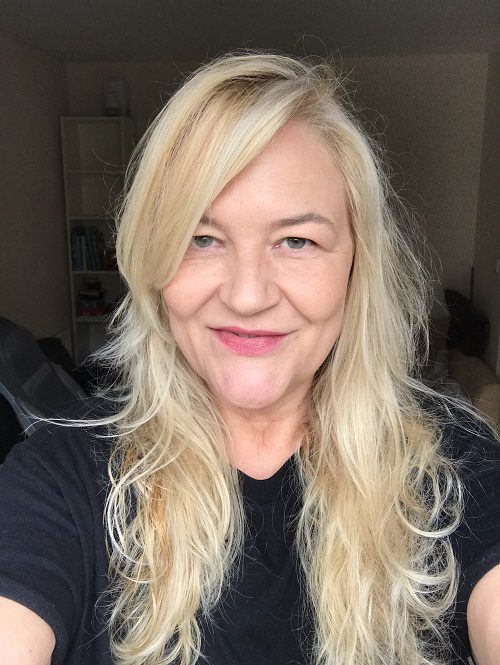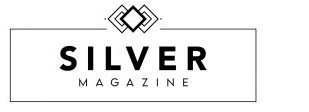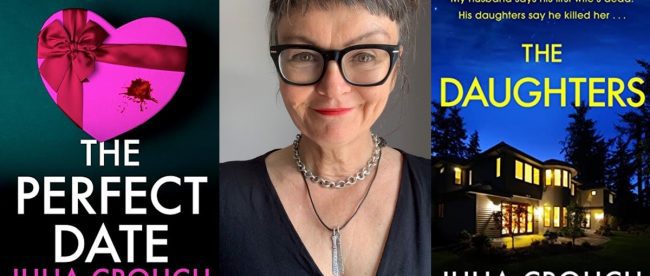Meet the novelist: Julia Crouch on writing with cats, cuppas, and Nick Cave
|
Listen to this article
Getting your Trinity Audio player ready...
|
Julia Crouch, the queen of domestic noir, kicks off our series
Ever thought about writing a novel? They say there’s a book in everyone, but how many of us get that book down on paper? Julia Crouch is the first in our series of interviews where we meet the novelist. And find out more about their writing challenges and habits…
How would you describe yourself?
I’m a novelist, runner, speccy yoga-doer, mother of three grown-up beauties – and I’m soon to be a grandmother. I pot, paint and go for long walks with my dog. I have been married to Tim for 34 years, though I would never call myself a wife. I am – generally – quietly political; a green, lefty, vegetarian feminist. I’m handy, practical and good in a crisis. Oh, and I cook like a bitch.
Where is your most ‘fertile’ zone for writing?
I have a studio at the bottom of my garden, which I bought in a good graphic design year about 20 years ago. It has had many incarnations and for the last decade, it has been my writing studio. I used to do most of my work in there, either at my sit/stand desk or lying on a day bed.
But in the last couple of years, my pottery and painting habit has commandeered half the space, and my writing area is now just the desk corner. Now my nest is empty, I have plenty of nooks around the house where I can write undisturbed. To be honest, most of the actual writing stuff now happens on the front room sofa, surrounded by my two cats and my dog and with the fire and fairy lights lit in the winter.
When you write, are you a longhand merchant, making notes by hand, or do you go straight to the keyboard?
I used to write notes longhand, but now my thumb arthritis makes handwriting painful and ugly. Also, I am a geek, so I love different software writing tools and I touch-type as fast as I think, so it makes sense to work on screen.
I will do note-taking on my phone, either voice notes or dictated. And I plot and plan using Scapple for mind-mapping, Aeon for time-lining – I find knowing when things happen helps with what happens – and Scrivener for drafting. For the arthritis, I dictate notes when I am emailing or marking up manuscripts for my teaching and mentoring work, but there’s some sort of disconnect with my brain for fiction writing.
If you didn’t write in the domestic noir genre, what would you explore instead?
I would like to write women’s/literary fiction, where my writing, characters and themes can breathe without so much plot! Don’t get me wrong, I love plot, but it would be lovely to be able to step back and just write without that particular discipline at the top of the pile of considerations. In fact, for a forthcoming novel, I am aiming to do exactly that.
Read more: Nick Lezard’s fave romantic novels
What’s the strangest thing you do to inspire yourself when you’re running on empty?
Go for a run with Nick Cave playing in my ears, throw a pot, or go and comb the mats out of my dog’s curly hair. I like that better than she does…
How do you overcome any distractions, stop prevaricating, and finish your work?
I use Mac Freedom. This switches the internet off, which really helps. I work in chunks – focusing on word count if drafting, chapters if editing, and time if doing admin and plotting. Mini goals are really important in keeping me focused.
I like to get up and do things like make a cuppa, put the washing on the line or get the supper prepped. Activities like that provide punctuation and, even if I don’t get far with my writing for the day, I’m making progress with other things around me.
How many of your characters are based on real people?
I invent all of them, but they are Frankenstein’s monsters, cobbled together from real people I know. But the characters come to me almost fully formed, which I always find weird. Very early on, I know them. They develop as I think about the story – their function grows with their form.
Character is plot, plot is character, said F Scott Fitzgerald. And I think about what relationship I want the reader to have with them. I trained and worked in theatre for the first 10 years of my working life, so I do think, for me, that creating characters is a bit like the work an actor does. It’s a sort-of inhabiting.
Has anyone ever recognised themselves in any of your novels?
My second novel, Every Vow You Break, is about an English family spending a summer in Upstate New York, while the husband, an actor, plays the lead in a Shakespeare. Every other year for about a decade my own English family did exactly that and it was an absolutely wonderful thing for all of us to do.
I made very sure that the husband – Marcus, who is the worst kind of male actor – very clearly has a fine, thick head of hair. Tim, my own actor husband is completely bald, so there can’t possibly be any similarity. A friend spotted her house once – I do tend to steal houses and settings more than characters.
Do you eat and drink while you write?
I’ve never been asked that before! Always a big mug of tea to hand, after my three morning mugs of coffee. I don’t like to eat because I can’t bear a sticky keyboard and I’m a mucky eater. Even in my drinking days – four years sober, dib dib – I never followed Hemingway’s exhortation to write drunk. Although on a couple of National Novel Writing Months, of which I have completed four, I would have only the end of the day and perhaps a bottle of wine down my throat to write my 1,700 words. Sometimes the results were interesting…
Does playing music help you write?
Yes, but it can’t have words. Regulars for me are Philip Glass, Bach and Handel’s piano music, Max Richter, Dirty Three, and film scores by Nick Cave and Warren Ellis.
Are there any hard and fast rules you set yourself about your stories or characters?
No coincidences. I think that’s it. Oh, and I like Chekhov’s thing about the gun. He said, “If in the first act you have hung a pistol on the wall, then in the following one it should be fired. Otherwise don’t put it there.” I love planting things.
Will the internet and people’s shortened attention spans ever mean the end of the novel?
Sorry, did you say something?
Ha, very funny…
I have a feeling that, just as people are wanting less mass-produced shit in their lives, real books are going to become more popular than ever. People have enormous attention spans for long form TV and stupidly long movies – I’m looking atcha, Scorcese. The low-tech activity of curling up with your cat, a cuppa, and a good, beautifully produced novel is quite alluring in this fast-paced world. It’s certainly Instagrammable!
What do you wish you’d known before starting this novel-writing malarkey?
It’s a good idea to talk an idea over with your editor and/or agent and/or writing best buddy and get the story sorted before spending two years writing it. And if that sounds horribly specific, it’s because it is.
What is your advice for eager new writers?
Enjoy yourself. Read Anne Lamott’s Bird by Bird. Work at the craft – read like a writer, fall in love with grammar, sort out your relationship with adverbs. But be bold with your writing and your ideas. Know the rules and know that there are no rules.
- To find out more about Julia Crouch’s work and to order her books, go to juliacrouch.co.uk
- National Novel Writing Month (NaNoWriMo) takes place every November. It began in 1999 as a daunting but straightforward challenge: to write 50,000 words of a novel in thirty days.

Sam is Silver’s founder and editor-in-chief. She’s largely responsible for organising all the things, but still finds time to do the odd bit of writing. Not enough though. Send help.



Leave a comment